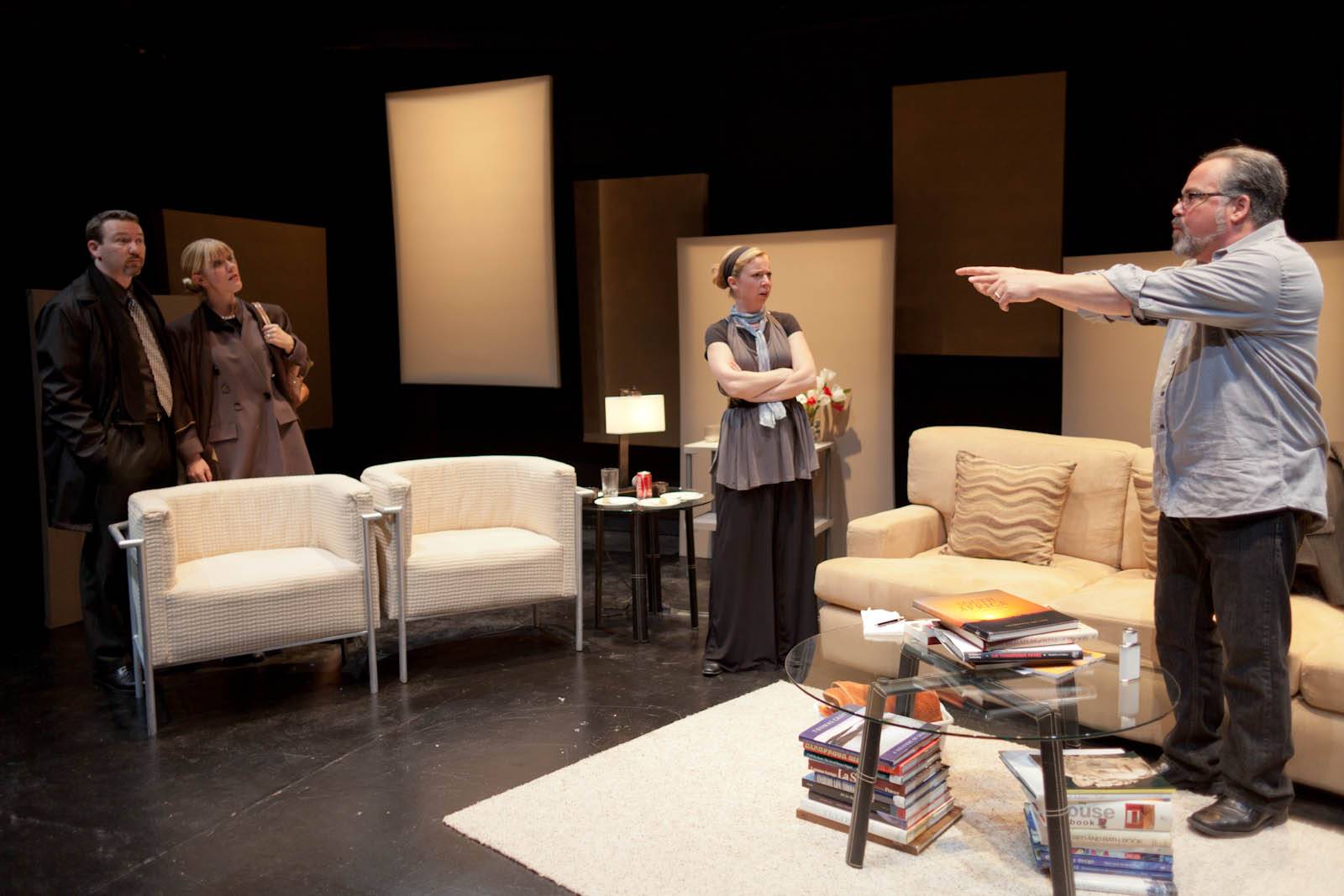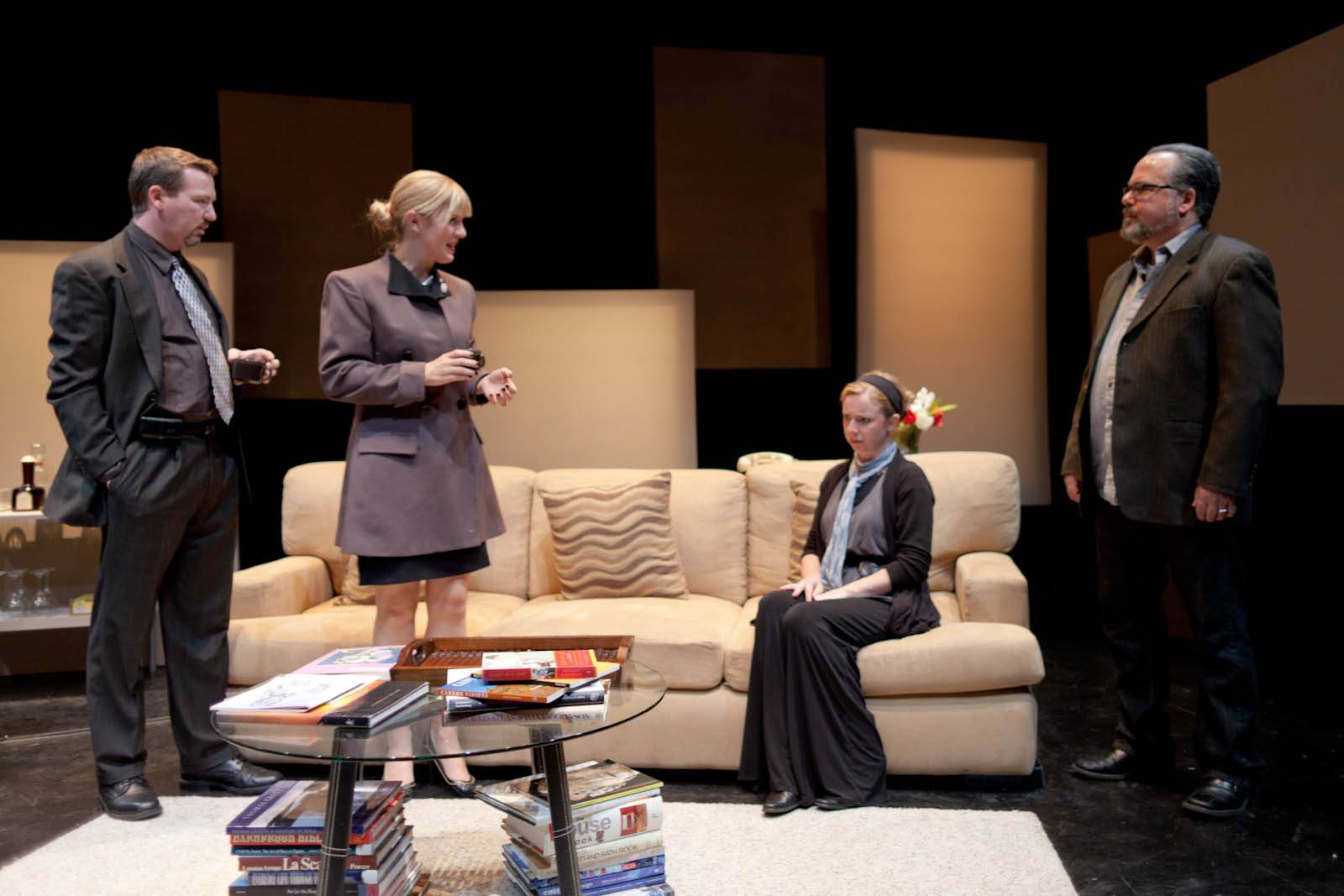I wasn’t sure what to expect when I walked into Urbana’s Station Theater last Thursday night to see the premier of Yasmina Reza’s, God of Carnage. Given the title, I had the vague notion that the play was to be some kind of ancient Greek epic with elevated dialogue and lengthy battles that resulted in the bursting of hundreds of blood packets. Naturally I was surprised, and even a little bit relived, to find the stage set up as a modest, upper-middle class living room with a few sofas, a coffee table strewn with books, and even a mini bar in the back left corner. But how does such a violent title relate to such a common setting?

The story goes like this: prior to the play’s beginning, two 11-year-old kids, Benjamin and Henry, get into a fight on the playground that results in Benjamin knocking out Henry’s two front teeth with a stick. The play opens with the parents of both children meeting to discuss the matter. We learn that Henry’s father, Michael, sells home appliances, while his wife, Veronica, is an anthropologist writing a book about Darfur. Benjamin’s father, on the other hand, is a lawyer who is constantly talking on his cell phone, and his wife, Annette, is involved in wealth management.
The two couples attempt to discuss their children’s fight in a civilized manner, but, as the evening progresses, manners dissolve and irrational, sometimes even violent, fights break out between the couples. Their quarrels revolve around the matters of marriage, masculinity and misogyny, racism, and homophobia. At the end of the play, the living room is left in shambles, and we realize that the couples’ disparate views on life may have had more to do with Benjamin and Henry’s fight than initially suspected.
 Jeremiah Lowry (Alan) did a solid job pulling off the archetypal career-obsessed lawyer. He was unabashedly self-centered and unapologetic, which, although did not make him likeable, made him very believable.
Jeremiah Lowry (Alan) did a solid job pulling off the archetypal career-obsessed lawyer. He was unabashedly self-centered and unapologetic, which, although did not make him likeable, made him very believable.
Jessa Thomas (Annette) portrayed her character as weak-minded, almost spineless at first, but as the play progressed, she emerged as the hardest hitting character, violent and degrading towards everyone in the room, eventually losing her mind. I found Bradley’s display of range to be impressive, and the destruction of her character to be one of the more tragic stories within the play.
David Barkley (Michael) was very believable as a middle-aged suburban parent. At the beginning of the play, he is seen as very obliging, always trying to make peace with those around him. But as he gets drunker, he grows more defeated and self-hating, representing an image of wounded masculinity that I’m sure made the male members of the audience squirm in their seats.
Rachel Bradley (Veronica) was the force within the play pushing the idea that we are to rise above our animal instincts and handle conflicts like civilized beings. She, however, is shunned by the words and actions of those around her, until finally, she too breaks down into hysterics. Her performance was desperate and intense, and I believe held the greatest topical value within the play.
On the whole, God of Carnage is harsh, depressing, and darkly humorous. It’s a play ridden with relevant social themes that hit as close to home as you can get. It’s necessary to mention that there are some uncomfortably close similarities between this play and Edward Albee’s, Who’s Afraid of Virginia Woolf, ranging from the setting and character dynamics, all the way to the drunkenness and vomiting. Taking this into account, I feel a reasonable way of approaching this play is by acknowledging Virginia Woolf as its predecessor, viewing God of Carnage as a more modern version of a very similar drama. Ultimately, I had a good time, Station always puts on a classy production, and this was no exception.








